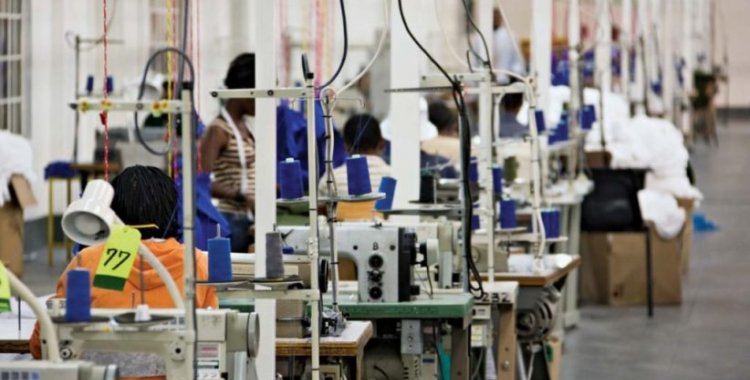Manuel Nunes Júnior, who was speaking at the opening of the Portugal-Angola Economic Forum, considered that "the partnerships of Angolan companies with Portuguese companies in certain sectors can offer Angolan companies good opportunities to have a good performance in other markets and contribute to the diversification of the country's exports".
"Therefore, we need Portugal to help us build an economy that is less and less dependent on oil and we invite Portuguese businessmen to invest in our fertile soils, so that, in a first phase, Angola can become self-sufficient in the production of food", said the minister.
Manuel Nunes Júnior invited Portuguese businessmen to invest "in agribusiness, in the textile and clothing industry, in the pharmaceutical industry, in tourism, in education, in health, in fisheries, in construction and in all sectors that can contribute to the diversification of the economy angolan".
"Angola is a country open to investment in practically all sectors of our life in society", said the official, adding: "Our desire is to see Portugal helping us in building an increasingly diversified economy in Angola, one economy capable of transforming Angola's enormous natural resources into tangible wealth for the country and the Angolan people".
The Minister of State for Economic Cooperation considered it "important" that Angolan businessmen "establish strategic partnerships with businessmen from other countries, possessing 'know-how' and advanced technology" so that the country "can quickly have access to that the best the world can offer us in the fields of business and technology".
"For Angola, foreign private investment will always be very welcome with a view to providing our country with not only financial capital, but above all the 'know-how' and technology necessary for growth and development processes", he said.
"Taking into account the extensive knowledge that Portuguese companies have of the Angolan market, also taking into account the prestige, quality and acceptance of Portuguese products in Angola, we are convinced that Portugal can play a particularly relevant role in this field", he stressed.
Manuel Nunes Júnior recalled that when, in 2017, President João Lourenço took office, "the Angolan economy was characterized by high and systematic budget deficits, a very high inflation rate, an exchange rate with a highly devalued and unpredictable trajectory and with a real economy showing negative growth rates", which led to a drop in the confidence of economic agents and less investment.
"Restoring confidence in the market, on the part of economic agents, constituted and constitutes a crucial factor of the governmental action of the Angolan executive in the last five years", he underlined.
With the fiscal reforms implemented from 2018, as part of the macroeconomic stabilization program, Angola "came out of systematic deficits in its fiscal accounts and started to show budget surpluses" every year, with the exception of 2020, due to the impact of covid-19.
"With surplus budget balances, it was possible to reverse the country's indebtedness trend. The public debt stock ratio in relation to gross domestic product rose from 134 percent in 2020 to 65 percent in 2022, very close to the 60 percent level, which is the target we intend to achieve", said the minister.
In his view, this tendency to reduce public debt is "an essential factor for the gradual decrease in market interest rates, which is already happening, even at a time when the world is witnessing a contrary trend".
Inflation rates "have also known a clearly downward trajectory": after a peak of around 42 percent in 2016, it was reduced to 13.8 percent in 2022.
"Our foreign exchange market is functioning normally. With the introduction of a flexible exchange rate regime that allowed adjusting the value of the national currency to market conditions, the country's foreign exchange transactions became safer and also more predictable and those who invest in Angola have been able to expatriate their dividends freely and, more importantly, in a timely manner", he added.
"We are working to continue on this path of economic growth, so that the country's major social problems can be resolved, with special emphasis on unemployment levels, which are currently very high", he stressed, considering "an imperative" the increase domestic production of goods and services.
Oil now constitutes "more than 95 percent of export resources and more than 60 percent of the country's tax revenues", he said, reiterating that Angola wants to diversify its economy.
"We want to end this great dependence on oil and build a stronger and more sustainable economy in Angola", he maintained.
He also considered that Portugal is "a country with an increasingly diversified economy, with an economy oriented towards the outside" and, therefore, "the partnerships of Angolan companies with Portuguese companies in certain sectors can offer companies from Angola good opportunities to perform well in other markets and contribute to the diversification of our country's exports," he added.
Manuel Nunes Júnior was speaking at the opening of the Portugal-Angola Economic Forum, this year dedicated to the theme "We build solid relations".
The objective was to debate and analyze the performance and prospects for the future of the Angolan economy, in order to make relations with Portugal, from a business point of view, "more operational and profound".
The opening session was also attended by the Minister of Economy and the Sea of Portugal, António Costa e Silva, who considered Angola "a commercial and economic partner of great significance for Portugal", noting that "in 2022 exports from Portugal to Angola spent 1,400 million euros".
"We have more than 4500 companies in Portugal that export to Angola, it is a very significant number, and we have more than 1200 Portuguese companies that operate in Angola in multiple domains", recalled the Portuguese minister.







